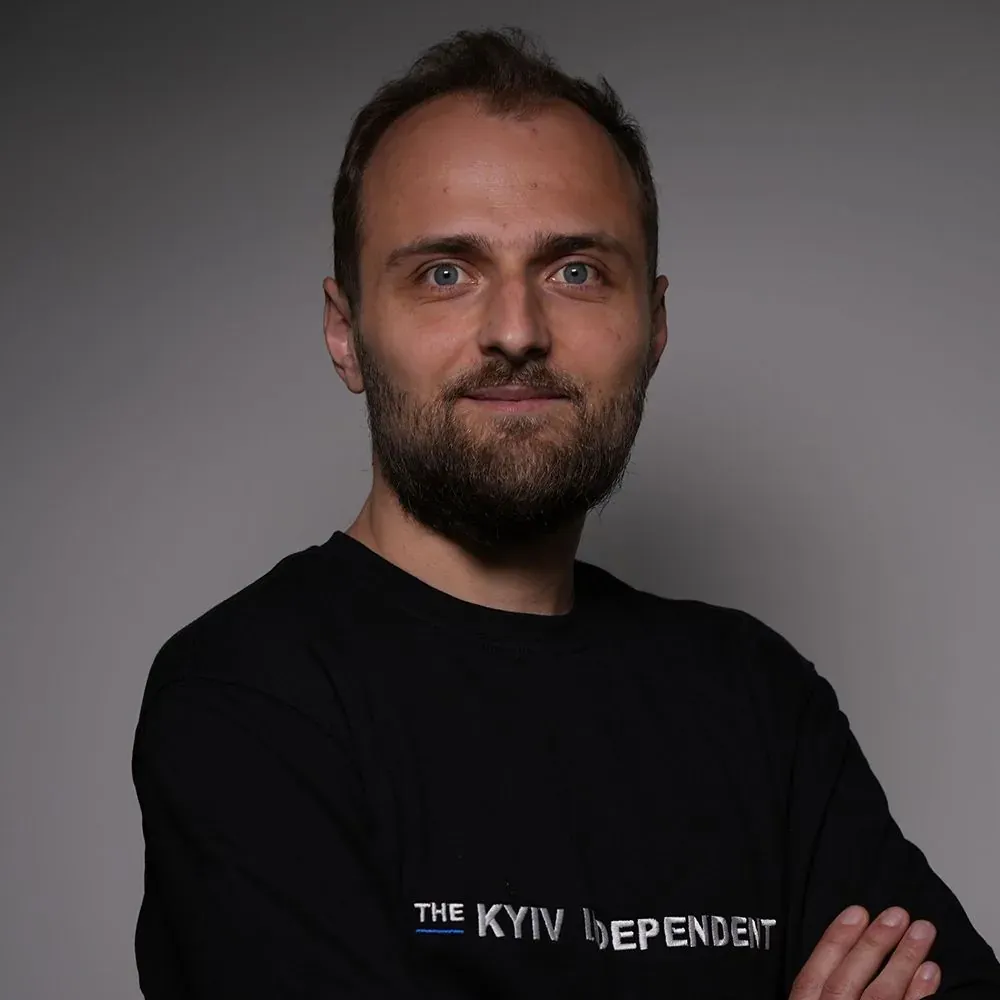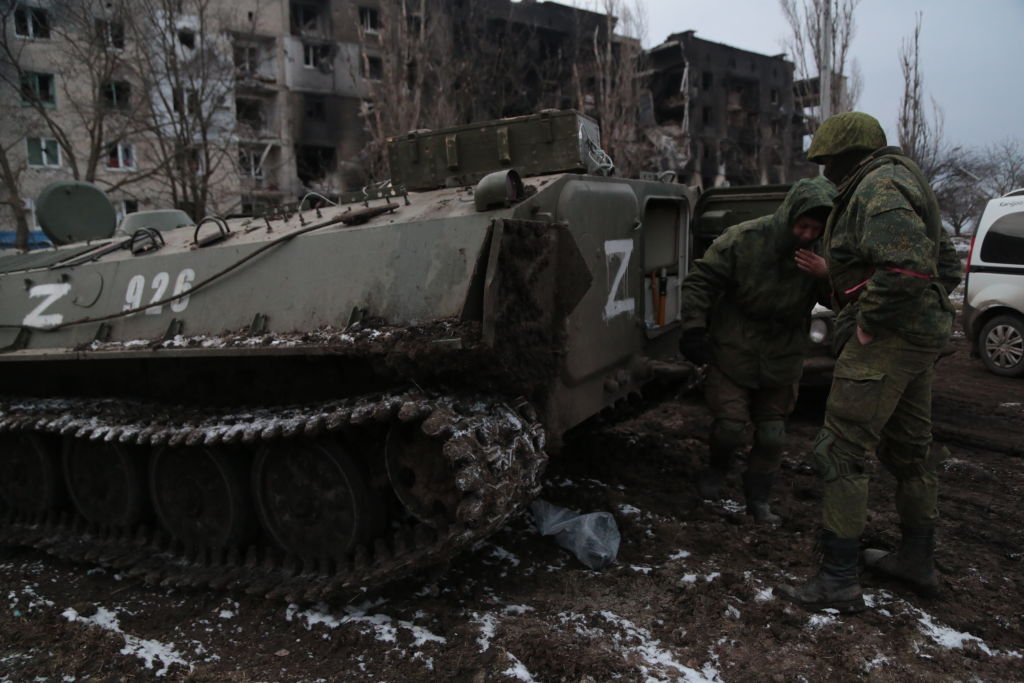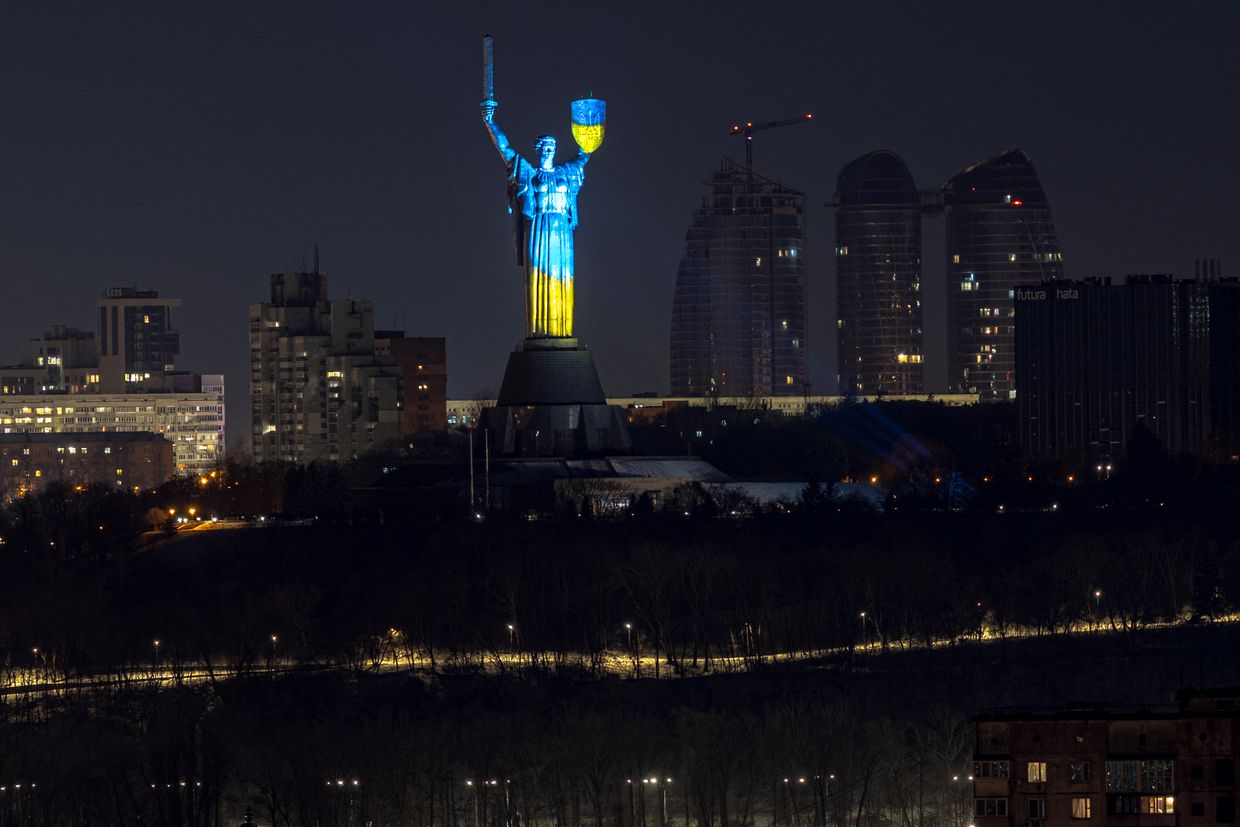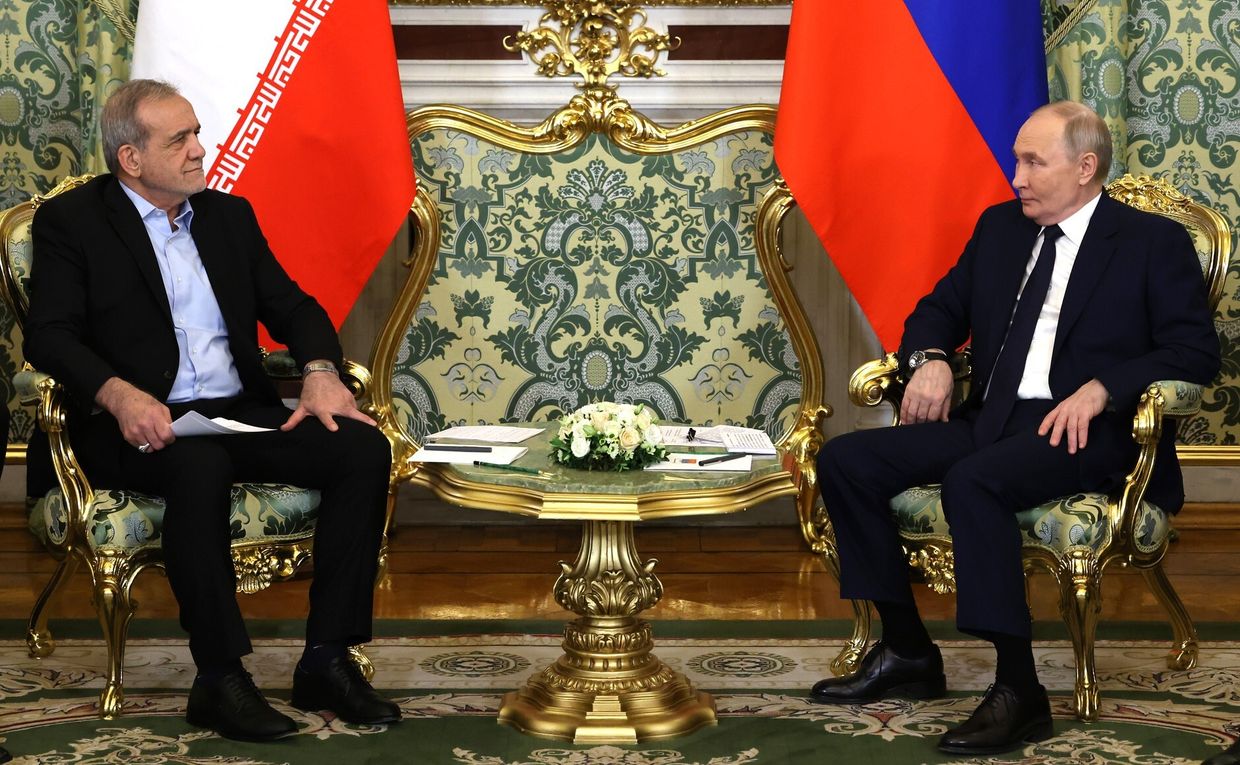Editor’s Note: The name of the person interviewed by the Kyiv Independent for this story has been changed to protect his identity as he has shared sensitive information that could place him and his family in danger.
“If Russia orders us to invade the entire galaxy, we will,” the woman at the entrance to the military commissariat in Russian-occupied Donetsk told a group of 50 freshly conscripted men.
It was the third day of Russia’s full-scale invasion of Ukraine, and Russia was sending men from the occupied region to fight on the front line en masse.
For the last five months, Russian proxies have been forcibly conscripting Ukrainians in the Donbas to fight against their own country.
Some took advantage of widespread corruption and left the region. Many were not as lucky.
Those who stayed have been taken off the streets of Russian-occupied cities and sent to the front lines without training, protection, or the will to fight.
Human rights activists estimate over 100,000 Ukrainians have been conscripted in occupied Donbas since mid-February. Forced conscription in the occupied territories is a war crime, experts say, calling it abduction.
Read more: EXCLUSIVE: Escaping forced conscription in Russian-occupied Donetsk
Pavlo, a 20-year-old man from Donetsk, was among those forcibly taken to fight on Russia’s side. (Editor’s note: The name has been changed for security reasons.) The man, who has serious health problems and zero military experience, was among the many locals used as cannon fodder by Russia.
“Those who don't show up at conscription offices when called up, get ‘guests.’ They burst right into your house, grab you and send you to serve anyway," Pavlo told the Kyiv Independent.
After spending over a month at the front line near Mariupol, Pavlo was decommissioned after nearly dying from respiratory failure. His condition is untreatable.
Forced conscription
A late call interrupted Pavlo’s evening playing video games.
On Feb. 26, he was told to come to the so-called military commissariat, or draft office. Forced mobilization in the Russian-occupied Donetsk had been going on for less than a week.
He tried to refuse due to respiratory disease, but his boss, a staunch supporter of Russia, threatened to cut his salary.
Pavlo decided to show up. He said that he had planned to show a health note so that he would not be prosecuted for declining the forced draft.
But his Ukrainian passport was confiscated by the militants, and the health note, issued before Russia’s 2014 invasion, was deemed null and void.
Pavlo was only 12 when Russia occupied the eastern part of the Donbas region. Being too young to leave then, he was old enough to serve now.
At the Russian-controlled military commissariat, all those who had health conditions were brought to the in-house doctor. Men without kidneys, with heart problems, and other illnesses were all in the room.
They were all admitted into the militant ranks.
Read also: EXCLUSIVE: Inside Ukraine’s covert operation to take out elite Wagner Group mercenaries in Donbas
"I don't give a fuck about your health. I have stage four cancer. I serve and you will," Pavlo remembers the doctor saying. He thinks the man was lying about being sick with cancer.
A man without a leg was asked if he could peel potatoes. He answered he could. He was drafted.
"Later we found out there weren’t any potatoes (to peel)," Pavlo said.
At the front line
The same day, Pavlo was given a World War II helmet, a light summer uniform, mittens instead of gloves, and as he found out later, ammunition that didn’t work.
"It was a nightmare," Pavlo says.
No one was given a bulletproof vest or a first-aid kit. Instead, they received a duffel bag with an army bowler, a spoon, and a flask. Everything was covered in grease.
After a short and formal oath, all those forcibly conscripted were taken to southern Donetsk Oblast where Russia was conducting an offensive.
Pavlo spent nearly five weeks in the villages surrounding Mariupol during the heaviest fight for the city.
Russian officers assured them that local recruits would stay on the "third line of defense" and would not attack Ukrainian forces. They lied.
Pavlo’s platoon lived in a cold barn. A part of the group slept on improvised beds made from pallets with hay on top, others slept on the cold ground.
Pavlo estimated that there were around 800 people inside.
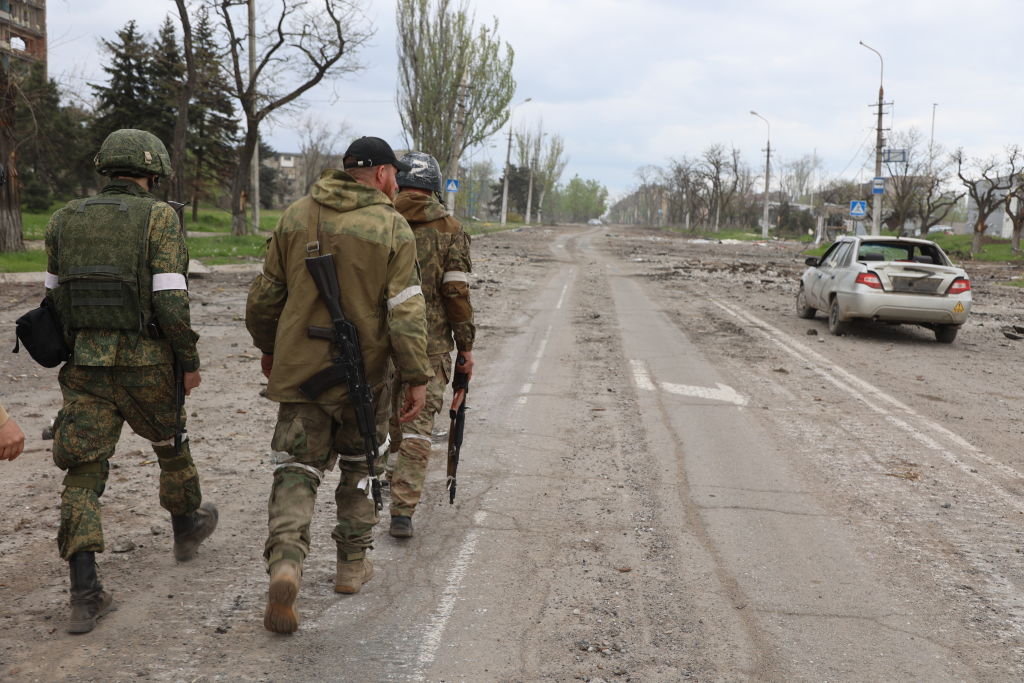
"I wanted to cry a lot," he recalled his first nights sleeping in a cold barn.
Pavlo hoped that the war would be over quickly. The militant commanders said they would "defeat Ukraine within a month." That was the evening of Feb. 27.
A week later, everyone was ordered to load AK-74s and told to get onto military vehicles.
The militants arrived at a village east of Mariupol and tried to build a fire. Their superior stopped them, saying that it could be detected and shelling would follow.
At this point, Pavlo says he had strong doubts about the "third line of defense.”
Soon, Pavlo says, it got even worse.
In the early days of the full-scale invasion, Mariupol was surrounded. The port city of 450,000 people was constantly bombarded by Russian artillery and aviation, turning the city into rubble.
Read also: Mariupol evacuees: ‘People just dying, city in chaos’
When militants arrived at a village near Mariupol, artillery immediately began to rain down on them. Pavlo says he never felt as scared as he was that day.
"Later I realized it wasn't Ukrainians shelling, it was us," he recalled.
Pavlo’s health problems intensified. "Yet there wasn't even anyone to talk to," he says.
The next day, the commander ordered them to prepare for an offensive.
After entering the city, Pavlo’s platoon was ordered to guard several streets on the outskirts. They were patrolling the streets at night to avoid being spotted by snipers.
Later, three men were chosen from the platoon to guard the dam. Pavlo was among them. Contrary to protests that he was sick and could not fight, he was sent there anyway.
"Nobody gave a shit. I called my mother and cried," he recalls.
However, being chosen to guard the dam may have saved Pavlo’s life.
The rest of their unit stormed Ukrainian positions in Mariupol. Pavlo declined to give further details about the militants’ losses in that raid.
Escaping
It took Pavlo weeks to see a medic. The medic was then able to convince the militants that Pavlo needed to get treatment. He was taken to a hospital in Donetsk.
Days later, Pavlo underwent surgery and spent six weeks in the hospital. He now has severe permanent health issues.
"I kept getting calls from the militants asking where I was," he says.
After being released from the hospital, he came back to the barracks with papers confirming his condition. A woman told him that he had been "sick for a long time" and must return to serve.
"Otherwise they will come for you themselves," she threatened.
Pavlo decided to go into hiding.
Several days later, Pavlo’s mother called the militants and was able to persuade them to allow her son to leave their ranks.
The next day Pavlo was called in to receive a military exemption from service. He was worried it was a trap. However, the medic at the militants’ commissariat asked the Russian proxies to “let him go and not torture him anymore.”
Pavlo says he couldn't imagine it would be that terrible. He added that he would like to leave Donetsk and move to Kyiv, but he’s now scared of persecution for being forced to fight on Russia’s side.
War crimes and justice
Alyona Luneva, director of advocacy at Ukraine’s ZMINA human rights center, says she wouldn’t recommend Pavlo to come to the Ukraine-controlled territory until a special legal framework is created for cases like his.
Forced mobilization in occupied territory is a violation of international law. It also violates the Rome Statute of the International Criminal Court.
Yet, despite the fact that Ukrainian authorities blame Russia for such war crimes and call those forcibly conscripted “victims,” they still may end up in prison.
"(Pavlo) will be charged with high treason," Luneva told the Kyiv Independent, saying that he is considered a militant for picking up arms against Ukraine.
The Prosecutor General’s Office launched multiple criminal cases against people forcibly mobilized by Russia from the occupied territories.
Human rights activists believe that those who had no choice but to join the Russian-led forces will be prosecuted, according to current legislation.
What matters for Ukrainian law, is that Pavlo did not surrender, and he carried on with his service until being demobilized by the militants. He told the Kyiv Independent that he had not thought about escaping when being sent to the front line.
Gunduz Mamedov, former deputy prosecutor general and expert on international humanitarian law, told the Kyiv Independent that “this practice is wrong because it means it’s the victim who is tried, not the criminal.”
"The main question should be whether the forcibly mobilized man committed a war crime," Mamedov said.
Mamedov and human rights organizations believe that forced conscription in occupied Donbas doesn’t imply high treason.
Now, Pavlo, who was forced to fight, has his health damaged and no legal protection in Ukraine.
"Without answers, we are doomed to see (this kind of) constant public tension," Mamedov said.
____________________
Note from the author:
Hello! It's Alexander Khrebet.
I'm happy to see you here because it means you've read through the entire story of Pavlo, whose name I had to change for security reasons. My home city Donetsk in the occupied Donbas is blocked off by the Russian iron curtain, but we do our best to find out what is behind it. But we need your support. Consider donating to the Kyiv Independent and becoming our patron to help us tell stories that matter. Thank you!
